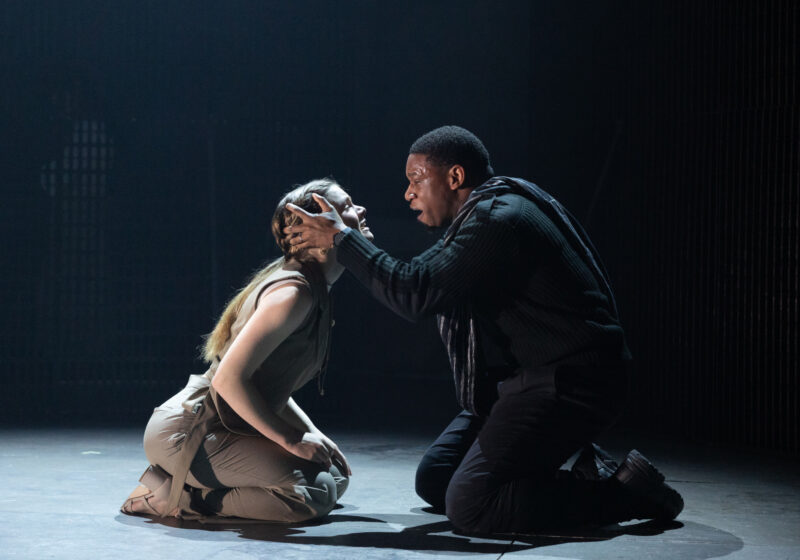Let’s just get this out of the way first. HBO’s newest show ‘Treme” is pronounced, ‘truh-may,” not ‘trem.” Much of the conversation I had leading up to this well-advertised and highly praised television show focused solely around how the hell to articulate the title.
After watching the pilot of ‘Treme,” it is immediately clear that this show is much more than a mispronounced title.
Longtime New Orleans resident Eric Overmyer and the distinguished David Simon, widely known as creator of ‘The Wire,” are credited with creating this new addition to HBO’s lineup. Expectations for a show produced by the same people who made what is largely considered one of the best dramas to unfold on the television screen are bound to run high. Simon was known for the use of his distinct voice and style of dropping the audience right into the action.
Seeing as I have yet to find the time to watch Simon’s masterpiece, ‘The Wire,” the ‘Treme” pilot episode introduced me to the Simon’s technique without any preconceived notions or any real expectations to live up to.
His impressive storytelling abilities were immediately apparent in this first episode, penned by Simon himself along with Overmyer. I found myself dropped into New Orleans three months after Hurricane Katrina unleashed its wrath on the city. It was mildly intimidating for me to be thrown into an environment without any recognizable people or places. This of course is the nature of the pilot episode itself the idea that a completely new story is about to begin; the notion that characters inside of a writer’s head have had life breathed into them as they appear on the screen you are watching.
But what was so striking about the ‘Treme” pilot was the way in which we weren’t really formally introduced to the characters. We immediately begin by watching them carry along through a typical day, just trying to make it in this city that has been marked with tragedy.
There are a lot of characters; I mean a hell of a lot. There’s the struggling trombonist, Antoine Batiste (Wendell Pierce), trying to talk his way out of cab fare after cab fare. Creighton Bernette (John Goodman) rages against a British TV interviewer about the faults of the government in the tragedy of the city. Bernette’s wife, Toni (Melissa Leo) lugs around her office work in bags as she works a case for a client because her office was destroyed in the disaster. Kim Dickens plays Janette Desautel, a chef at an inconspicuously struggling restaurant and the reluctant girlfriend of a disc jockey and musician Davis McAlary (Steve Zhan). And perhaps the most tragic, yet spirited story is that of Albert Lambreaux (Clarke Peters); who moves into his devestatlingly run-down bar in an effort to return to the life he had pre-Katrina, and re-unite his tribe in time for Mardi Gras.
And those are just the characters we meet in the first episode apparently there are more to come. At the end of the episode I honestly found myself struggling to remember a single character’s name. Needless to say, the Internet Movie Database has played a very helpful role in nudging my memory in the right direction.
What I did remember were the striking scenes, such as Albert’s victory dance in the ruined streets of New Orleans contrasted by his remarkably elaborate and garish Mardi Gras costume after procuring help for his mission to reconstruct the bar.
What I remembered was the joy and spirit of the New Orleans residents in the opening sequence as they marched in the first parade to occur post-Katrina. I remembered the music of the horns that the city is so famous for. I remembered the simple rebellion of Davis as he chose not to play the music he was meant to on the radio.
What Simon and Overmyer constructed throughout the pilot episode, along with the help of beautiful directing by Agnieszka Holland, was a culture. The strength and courage of the city could be felt amongst the rubble of homes and buildings. Yes there is misfortune and yes you can see the heartbreak in the eyes of the characters. But just like the music that plays throughout the entire episode, there is a soul to the city that can’t be crushed. New Orleans becomes a character in itself.
One small element I found so compelling throughout the episode was the way almost all of the music came directly from the universe of the show itself, rather than being placed over the image for the audience’s pleasure alone. It is details like this that have given ‘Treme” the wide praise it has received so far.
This is not a show driven by plot lines or mythology. It is a show directed completely by the characters. There are stories to follow and ones that I am sure will develop with time, but the real tragic beauty and power of the show comes from the people and the culture.
In the final scene of the episode, the city’s residents gather together for the funeral of a member of the community lost in the hurricane. The scene embodies the tone of the ‘Treme.” The band of the city comes to play their most lively music to commemorate the life of the deceased, just as the music works throughout the show to celebrate the life of a city working to resurrect its spirit from the destruction.
‘Treme” airs on Sundays at 10 p.m. on HBO.
Rosenberg is a member of the class of 2012.





